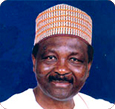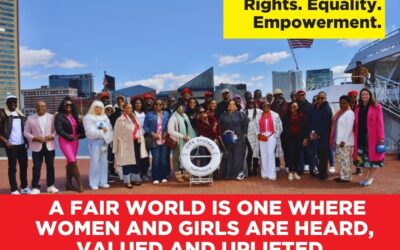When General Yakubu Gowon was asked what he thought was the solution to the crisis situation in the 1960s, he replied crisply saying it was in "Willink". The Willink Commission whose recommendations were published in 1958 had made a series of recommendations aimed at correcting the imbalance in the Nigerian federal structure.
Significantly, the Commission recommended the demarcation of the erstwhile three regions (North, East and West) into smaller states. It was believed that the new arrangement would allay the fears of the minority ethnic groups about the dominance of the majority groups. Sadly, Willink's recommendations could not be implemented not least because of the suggestion that independence be postponed for a further two years in order to give sufficient time for the new states or regions to take off.
True to General Gowon's conviction, not least because he himself is a member of a minority ethnic group which had agitated for the creation of an autonomous region in the north, the demarcation of Nigeria into smaller states became one of the achievements to be associated with his administration. The fact that Gowon's policy was perceived largely as a tactic aimed at decimating the political strength of secessionist Biafra, ensured that the dominant group in the north became supportive of an idea which they themselves had resisted in the past. Professor Tekena Tamuno, in a brilliant journal article, documents a history of violent agitation for state creation since the inception of the Nigerian nation in 1914.
Nigerians may be divided on the number of states they deem appropriate for the nation; however not many would dispute its importance for development and national unity. Had a soothsayer predicted at independence in 1960 that Nigeria would fight a civil war, an informed observer of events would probably not have seen anything special in such a prediction. The possibilities of a major conflict were always evident in the contradictions of ethnicity, religion, culture and language that were cobbled together by the British colonial masters. British divide and rule tactics, and favouritism did not help matters. Fear of offending northern or Islamic sensibilities resulted in the unequal educational development of the Nigerian polity.
While the north was truly behind in education and commerce, it did achieve the power position it craved courtesy of the 50 per cent electoral representation it demanded and got at the Ibadan Constitutional Conference of 1950. The north's undue advantageous position undoubtedly sparked off a series of conflicts which graduated into a bloody civil war between 1967 and 1970. The coupists who overthrew the First Republic in January 1966 might have acted as the military vanguard of a group which had become rather frustrated in their quest to achieve political power through the electoral process. The counter coup of July 1966, masterminded by northern officers, was designed to return Nigeria to the status quo ante.
Of course the north was and is still not monolithic by any yardstick but the power position of its main group(s) as represented by the ethnocentric Northern Peoples Congress (NPC) became something to challenge. Attempts to redress the imbalance via the 1963 census exercise achieved no fruitful results, as was also the unstable alliances of ethnic political parties. The system of "government" and "opposition" inherited from the British colonial masters more or less provided an organised forum for the free flow of ethnic tantrums and the formulation of policies that were intended to cut "political enemies" down to size! In the event that the 1999 Constitution is reviewed, the position here is that the erstwhile parliamentary model of democracy is unsuitable for "cleavaged" Nigeria and should remain consigned to the dustbin of our history.
One's apparent bias is therefore for the presidential system of government, not least because of the assumption that it has greater potential than the parliamentary arrangement in the department one considers most crucial for Nigeria. The quality of parliamentary debate as observed in the British House of Commons can be admired but the very need to hold fragile Nigeria together is of overwhelming importance. The presidency has a coalescing or centralising influence while the "government" and "opposition" system could further polarise an already divided nation. Since the adoption of presidentialism our political parties have sought to transverse the nation's cleavages of ethnicity and religion.
Any political party with a serious intention of winning the presidency must, as a matter of necessity, cut across the cleavages of ethnicity and religion. Indeed, the potential leader of the Federal Republic of Nigeria can no longer be recruited from the ranks of extremists or demagogues of the ethnic or religious persuasion. The unifying political party, in the context and reality of our nation, can hardly be an association of like-minded individuals but an umbrellage of diverse and even conflicting interests.
The military did well to resolve the once thorny issue of state creation but the human element of our inter-ethnic relations needs to improve considerably. Religious intolerance poses grave danger both to our economic interests and the long term co-existence of our diverse groups. The culture of tolerance for others' beliefs must be firmly injected into the psyches of our peoples. The leaders of the Nigerian community, former rulers or leaders in particular, must not play religious politics with the lives of ordinary Nigerians.
The expression of the full weight of their moral authority on issues of religious or ethnic intolerance will go a long way to educating our peoples about the ethics of good neighbourliness. Their seeming conspiracy of silence – they hardly ever make public statements on religious and ethnic conflicts – could be misconstrued as an endorsement of hooliganism and bigotry. One cannot but commend General Yakubu Gowon for his consistent commitment to peace and unity in Nigeria as further evidenced by the works of his Foundation, "Nigeria Prays". Others should follow his example.
The Nigerian elite must also reconcile their greed with the moderate desires or aspirations of the vast majority of our people. The greed and conspicuous consumption of the few in an environment of mass poverty could spell doom for the society at large. One has heard people talk of a Nigerian revolution but ethnic unrest could be the possible consequence or outcome. Because of the nature of our society – a nation of distinct ethnic boundaries and peculiarities – we must be wary of the opportunism and threat to the continued existence of Nigeria by those who do not believe in that concept.
Education, spreading prosperity and entrenching the culture and principles of democracy, constitute the way forward to realising our dream of a united and stable Nigerian nation. Religion is good, especially if we all accept that its ultimate objective is about the "good human being".
By Anthony Akinola
Oxford, England


![[PRESS RELEASE] AFFIRMATION OF EMERGENCY RULE IN RIVERS STATE THROUGH “AYES AND NAYS”](https://www.nas-int.org/wp-content/uploads/2025/03/National-Assembly-Ayes-and-Nays-400x250.jpeg)

